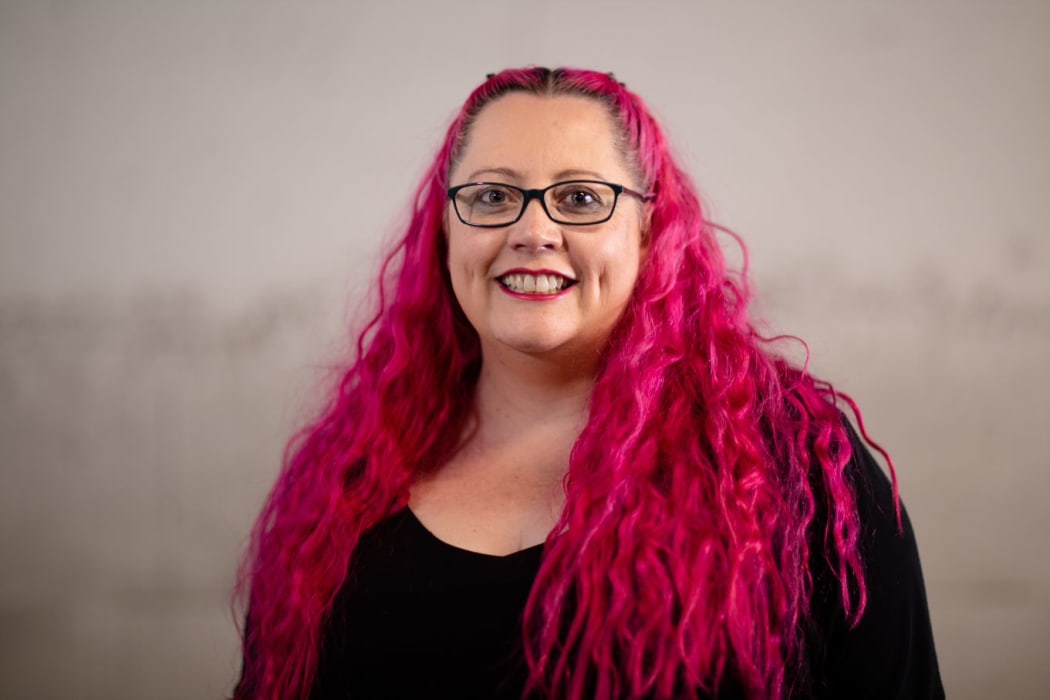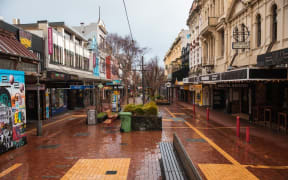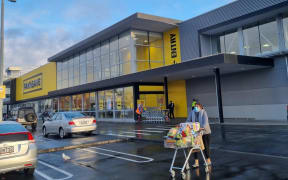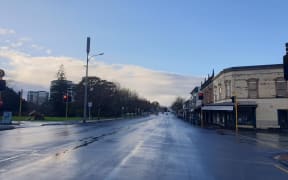Now that we know Covid-19 is airborne, stay away from people who aren't in your bubble, says microbiologist Dr Siouxsie Wiles.

Photo:
During the first nationwide lockdown, people were seen socialising two metres apart from one another when out of the house.
Microbiologist associate professor Dr Siouxsie Wiles told Nine to Noon, with new knowledge that Covid-19 is airborne, that's no longer something safe to do.
Please don't go out and chat with a friend while you are out, Wiles said.
"Don't hang around and have a chat, connect in other ways. We've got phones, we've got Skype, we've got Zoom...we need to physically disconnect for a little while," she said.
"Stay away from people."
As a respiratory infection, people will be shedding the virus from their mouth and nose, she said.
"That's why we've seen this airborne transmission."
While at the beginning of the pandemic the focus was on transmission from touching surfaces, Wiles said.
"What we know from Delta is people are likely shedding higher amounts of virus in those very early days before they know they're infectious."
The Jetpark case this week is an example of this, she said. The Delta variant of Covid-19 was transmitted when doors were simultaneously open for just seconds at the MIQ facility.
Delta is a game changer, she said.
"We know that it's so much more infectious, and if we don't act really fast and really hard then it can be quite difficult to get on top of cases and that is absolutely what we don't want to happen here."
A study in China showed people test positive earlier with the Delta variant, she said.
"So the average day from exposure to testing positive with the previous variants of the virus was about six, but with Delta it looks like it's less than four. So that means that people are infectious earlier and that then means the virus moves quite fast."
It's something you can see in this latest outbreak, she said.
When leaving the house
When you're out of your house, wearing a mask is important, she said, and "anything is better than nothing".
"Just wear something. If all you can get your hands on is a surgical mask or fabric mask then that's fine, if we all wear them then we're much more protected."
Also important is staying within your bubble, she said.
"The really important thing about bubbles is we keep them as small as possible, obviously if you're a single person you can join bubbles with another person. If you are families who are sharing care of people then obviously you can join but really try and keep those sizes to a minimum."
Someone in your bubble shouldn't connect with someone from another bubble, she said.
"If you are not safe in your bubble then you are obviously free to leave that bubble, so please do get help if you need to."
When you leave your bubble for a reason such as buying food, or for exercise, Wiles said it's important to "mask up and stay as close to home as possible".
"Don't do anything that might mean that you need to be rescued by someone else because obviously you're putting them potentially in danger or you could end up catching the virus that way.
"If you're going to be exercising, keep it simple."
What about taking your dog out for a walk? Wiles said there have been cases of transmission from owners to their pets but she's not aware of any the other way around.
"If you're ill, keep your pets away from you, obviously if you're ill you should be getting tested and if you are a Covid case you will be taken to somewhere safer for you and for everyone else. I don't think there's been any cases where anyone has picked it up from their pet, it would be much more the other way around."
She didn't think washing your dog after a walk was neccessary but if you're worried about symptoms your pet may have, get in touch with your vet.
Vaccinations
Wiles said vaccinated people are prevented from getting a severe infection.
"We know that unfortunately the vaccines don't stop transmission, they certainly slow it down and reduce it," she said.
"What [studies have] looked at is people who have tested positive, they seem to have a very high viral load at the beginning but then their immune system kicks in and that viral load comes down and that's why they don't get sick."
"It looks like people will be infectious but for a shorter period of time."
It's important that people who are vaccinated take this situation seriously, she said.
***
This is an official COVID-19 ALERT.
All of New Zealand is now at Covid-19 alert level 4.
The alert level will be reviewed after 3 days for all areas EXCEPT Auckland & Coromandel Peninsula which is likely to remain at level 4 for an initial period of 7 days.
A community case of Covid-19 has been identified.
Stay at home where possible & follow the Alert Level 4 guidelines. This will stop the spread of COVID-19 and SAVE LIVES.
Everyone is asked to:
Wear a mask and keep a 2 metre distance from others whenever you leave your home.
If you are sick, call your doctor or Healthline on 0800 358 5453 for advice about getting tested.
Keep on scanning QR codes whenever you leave your home.
Practice good hygiene - wash hands often.
Services including supermarkets, pharmacies, clinics & petrol stations will stay open at Alert Level 4.
For more information on Alert Level 4 go to [the government website www.covid19.govt.nz]
***
RNZ is the statutory Lifeline Utility responsible for radio broadcasting under the Emergency Management Act 2002 and it has a memorandum of understanding with Government which has been activated to help deal with potential health issues related to the pandemic. RNZ's Lifeline Utility obligations do not affect our editorial independence as a public media organisation or the rigour of our news gathering and reporting operations.
As New Zealand's Lifeline Utility radio broadcaster, RNZ is required to maintain essential public information channels and news during times of national emergency and we are committed to supporting all New Zealanders.
We are also committed to looking after the health and well-being of our staff.
RNZ will continue to provide essential information services - broadcasting and publishing critical public service announcements on air, on our website and via social media channels. Comprehensive news will be available on air and via our website and digital services.
If necessary RNZ Concert and RNZ Pacific will carry news and information from RNZ National. Parliament will continue to be broadcast on the AM network when the House is sitting. As the country's public service media organisation, RNZ is committed to supporting all New Zealanders.
Kia Kaha - Stay Strong





